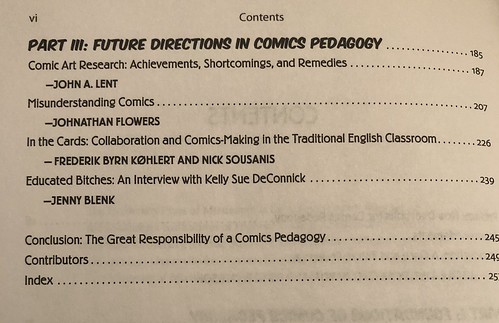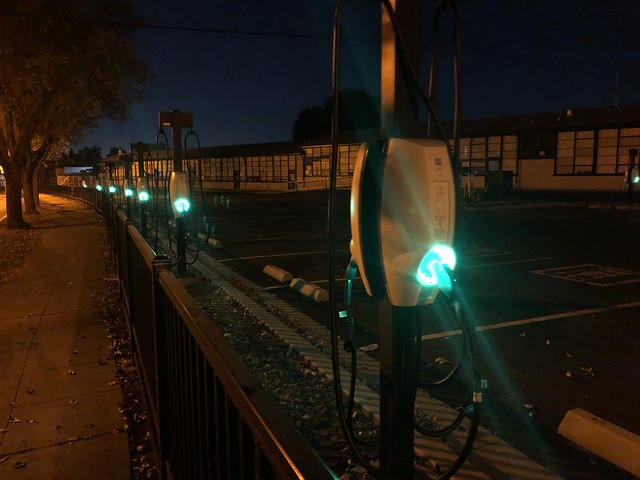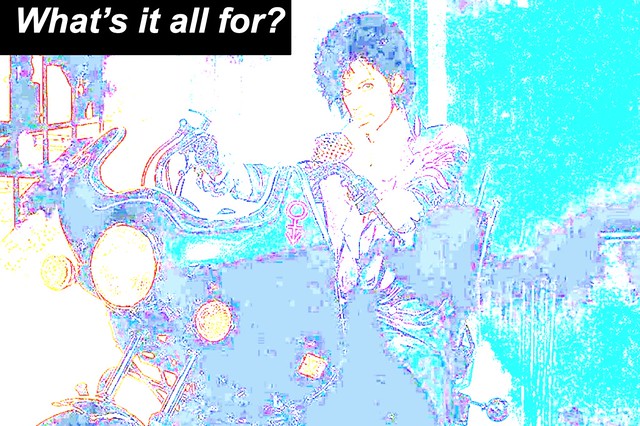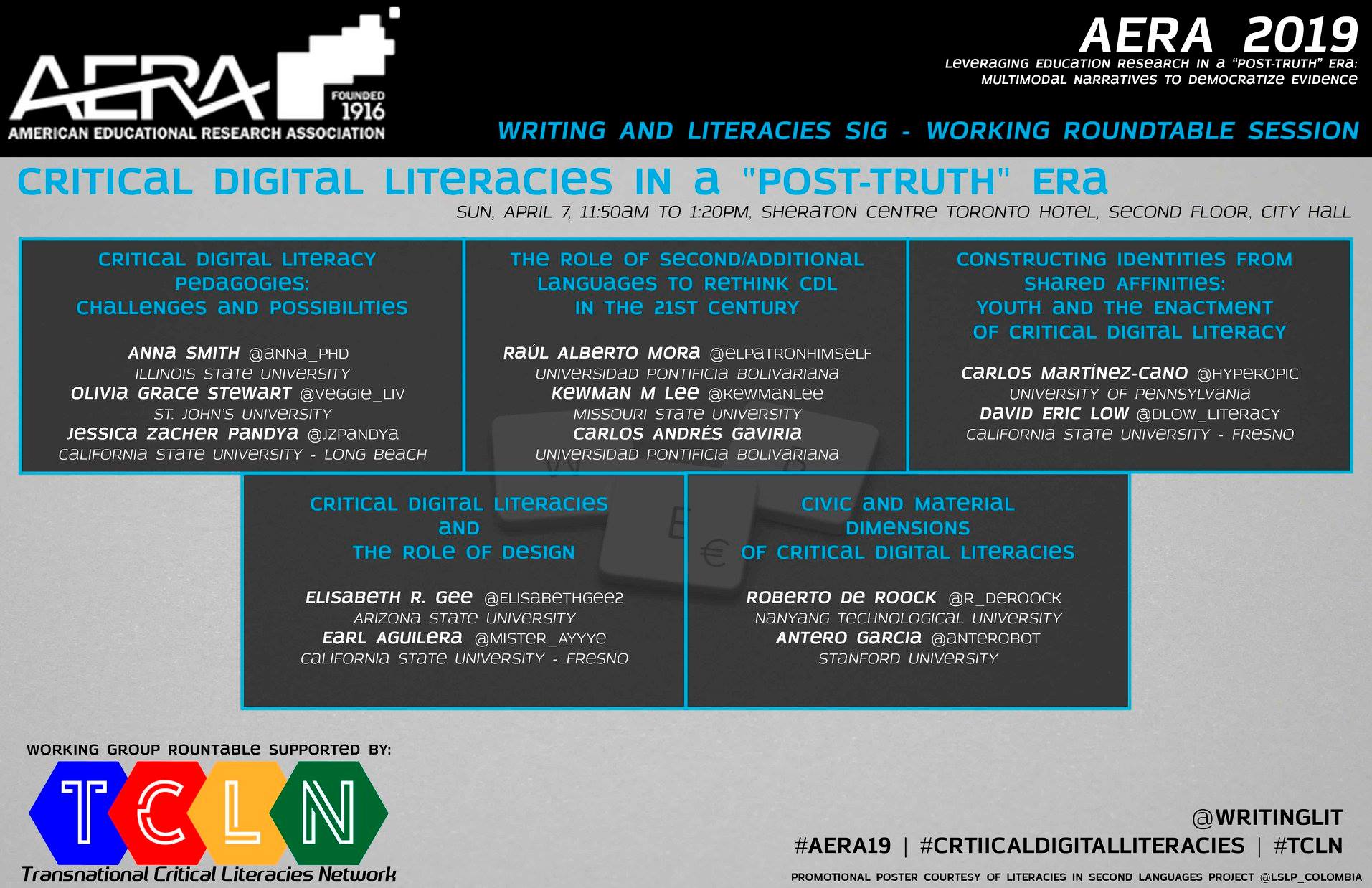Phil Nichols and I are seeking chapter proposals for a volume we are in the midst of proposing focused on the possibilities of literacies in relation to platform technologies. This is related to our recent article in Phi Delta Kappan. The full call for chapters is below and abstracts are due April 15, 2021. Please share this call with any interested folks – we are hoping to hear from literacies scholars in varied, global contexts.
Call for Chapters
Literacies in the Platform Society: Histories, Pedagogies, Possibilities
Editors: T. Philip Nichols, Baylor University & Antero Garcia, Stanford University
Over the last decade, literacy teaching, learning, and practice have increasingly come to be facilitated by platforms — digital spaces where users engage in social and economic exchange. These include multipurpose giants — like Google, Facebook, and Amazon — that provide infrastructures for producing, storing, and circulating texts; as well as niche resources for designing, remixing, monitoring, assessing, sharing, and discussing them (e.g. TurnItIn, Voicethread, Nearpod, Epic Reading).
To date, attention to such platforms in education (when it exists) has tended to focus on the level of individual apps, and their opportunities and limitations for ethical, equitable, and justice-oriented pedagogy. However, a growing, multidisciplinary literature on “Platform Studies” has begun to recognize platforms not as discrete tools, but as an emergent organizational logic. This logic simultaneously (1) offers a range of consumer-facing services; (2) harvests data on the back-end of these transactions; and (3) interoperates with other platform-providers to share or sell this data, or use it in future product development. The steady creep of this logic, and its attendant datafication processes, into more and more aspects of social life has resulted in what some scholars have termed “the Platform Society.” For literacy studies, this view suggests that, while platforms can appear as ready-made tools for literacy instruction and practice, they are underwritten by sociotechnical architectures (e.g. code, data, algorithms, interfaces, governance structures, business models) whose inherited interests and assumptions may work with or against those of their users.
This raises significant challenges for literacy practice, teaching, and research. While there are rich lineages in literacy studies that explore the critical potentials of digital media for producing, circulating, and interacting with texts, platform technologies tether such activities to design constraints and commercial actors that delimit their form, content, reach, and impacts. Likewise, though there are powerful pedagogies that make use of digital connectivity, platforms enroll educators and students in regimes of surveillance and data-extraction that raise thorny ethical questions for schools. And because many of the mechanisms that drive the ‘platformatzation’ of literacies are hidden beneath-the-screen (e.g. in code, wiring, algorithms), it can be difficult for researchers to account for their roles in co-constructing acts of reading and writing.
This edited volume aims to confront these challenges by bringing together scholarship that examines the shifting meaning, place, and work of “literacies” in the Platform Society. In particular, we are seeking chapters that speak to one (or more) of three themes that will assist the volume in articulating an agenda for literacy studies in emerging platform ecologies. These include:
- Histories — continuities with, and breaks from, past perspectives in literacy studies that can help us better frame and understand reading and writing in platform environments;
- Pedagogies — instructional considerations for teaching with and about platforms in diverse educational settings;
- Possibilities — opportunities for moving beyond critique of platform technologies and into forms of usage (or resistance) that prefigure alternate relations to digital and data technologies in literacy education.
We welcome chapter submissions that engage such themes through any number of theoretical, methodological, or transdisciplinary orientations. Chapters may, likewise, be empirical or conceptual in nature (though we will aim for a balance of each in the final table of contents). Potential topics might include, but are not limited to, the following:
- AI/machine-learning technologies in literacy instruction/practice
- Civic learning and literacies within, within, or against platform ecologies
- Social media, peer-production, and digital labor
- Algorithmic bias and educational justice
- Disinformation and ‘media literacy’ in platform ecosystems
- Datafication and ‘data literacies’
- Surveillance/dataveillance in digital reading/writing
- Reading/writing interfaces and their relation to practice
- Platform capitalism and governance in- and out-of-schools
- Intersections of code, coding, and literacies
- Hardware and physical infrastructures of digital reading and writing
- Environmental and global impacts of platform technologies
Submission Details
Interested contributors should submit a 500-word abstract to phil_nichols@baylor.edu by April 15, 2021. This abstract should detail the chapter’s contribution and fit within the edited volume, as well as the structure of the proposed chapter (including its argument, theoretical/methodological approach, and sources of evidence/data). The anticipated timeline for the book’s development is:
15 Apr. 2021 — Abstracts due
30 Apr. 2021 — Contributors notified
1 Sept. 2021 — First draft of chapters due
1 Nov. 2021 — Editorial feedback on chapters returned
15 Feb. 2022 — Revised chapters due
The volume will be submitted to Routledge’s “Expanding Literacies in Education” Series, edited by Drs. Jennifer Rowsell, Cynthia Lewis, and Carmen Medina. The anticipated publication date is late-2022 or early-2023.














